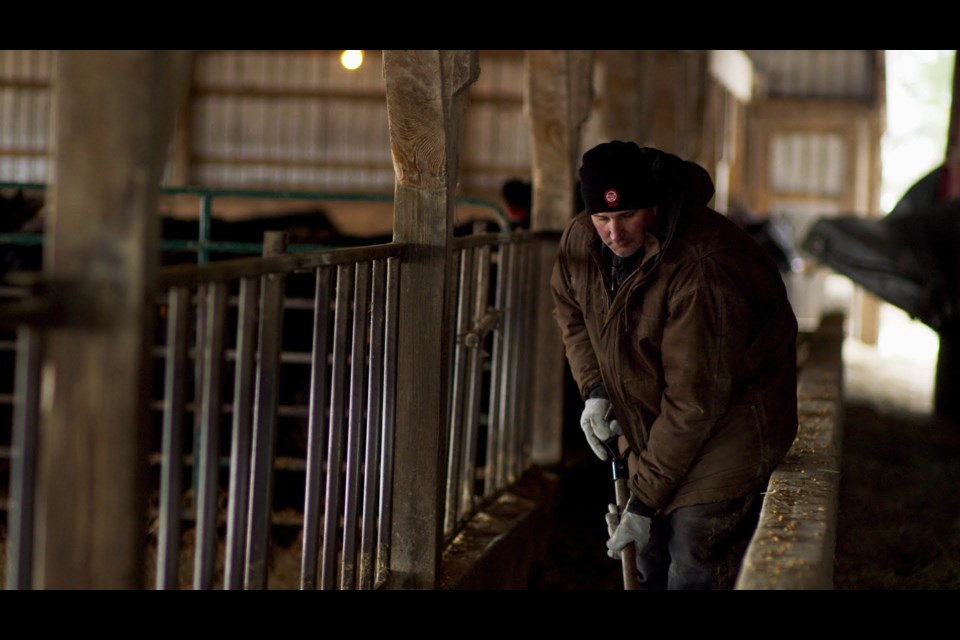Ontario beef farmers are in a tough spot.
The new national food guide failed to recognize the role of beef in a balanced diet.
Alternative protein sources are grabbing the limelight – that includes cultured meat, even though it’s still years from hitting the market.
And cheap imports dominate certain market segments in which beef producers here figure they should be players.
But rather than retreat, beef producers are going on the offensive.
Last week in Toronto, at the annual general meeting of the Beef Farmers of Ontario, members voted to significantly add to their marketing and promotions war chest to make sure their voices are heard above those who want to shut them down.
Here’s how.
Members voted for a $1.50 per head increase in their check-off fee. Currently, every time a beef animal is sold, $4 from the sale is “checked off” and goes to the Beef Farmers of Ontario (BFO).
Some of that money is directed to Canada Beef, the Beef Cattle Research Council and to stakeholder engagement, for what’s broadly called issues management.
As for the new $1.50 increase, $1.25 will be directed to market development through a new joint marketing committee with the Ontario Cattle Feeders’ Association. The remaining 25 cents will be used by the BFO to support consumer and producer engagement activities.
About 900,000 beef animals are marketed in Ontario every year, which means in total the check-off will generate about $5 million a year.
The organization unsuccessfully tried getting this through its membership last year. So, what’s changed in a year?
Lots, say the headlines. But Fergus-area beef producer Joe Hill, president of the Beef Farmers of Ontario, says it’s not the escalating buzz around cultured meat and alternative proteins that turned the ship around. Yes, farmers read headlines too. And they know countering the anti-beef, anti-meat movement that seems to just keep growing will take some resources.
But Hill maintains producers just needed time to, as he says, “get more comfortable” with the idea of paying more. They’d been committed to the $4 check-off for years. A boost like the one they were facing takes a bit of time to chew on and swallow.
Hill thinks a key element in the new marketing drive is countering imports. Despite all the good things about Ontario beef – such as it being locally grown, fed locally grown feed and processed mainly by local companies – Ontario is still a net importer of beef. In fact, most of the beef imported into Canada is sold in Ontario.
But it doesn’t come with the attributes consumers here say they want, such as grass-fed, organic, raised without added hormones, antibiotic free and in a growing number of instances, “ultra-local” – that is, identified with a specific farm.
So that’s where the beef farmers are going to put their promotion. If that’s what consumers want, they are not getting it from imports from the USA or elsewhere, at least not right now.
“As an organization, the Beef Farmers of Ontario can’t develop specific brands, but we‘re prepared to support beef farmers here who emphasize attributes consumers desire, through help with labeling, connecting them at various points in the value chain, recipes or other initiatives,” says Hill. “Our belief, based on extensive market research, is that there is strong support for local Ontario beef products. We need to add more attributes to our product that consumers say they want.”
Some of the check-off money will go to a program that helps new beef producers get started. Like farming in general, beef producer numbers have been on a slow decline in the past dozen years. Those that remain are not producing enough calves to help meet demand – Ontario has lost 30 per cent of its cow herd, so imports have an easier time gaining acceptance.
But they can’t beat local.
“There’s lots of room for expansion by existing producers,” says Hill.
So watch for more Ontario-branded beef when BBQ season arrives this spring and summer – and before that, prepare to be educated on beef by farmers.
